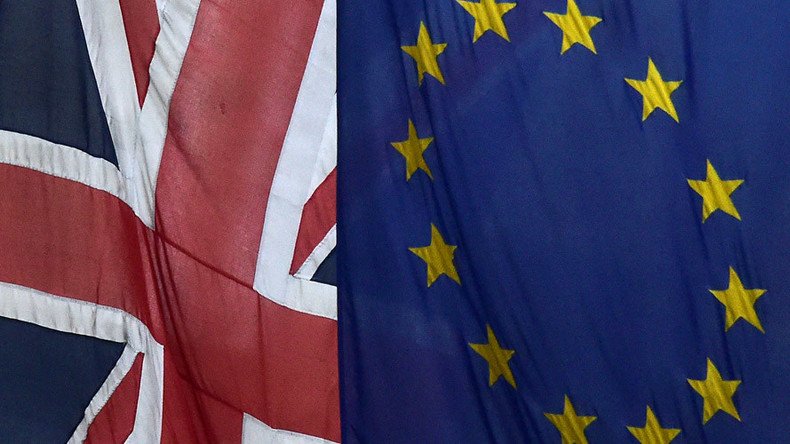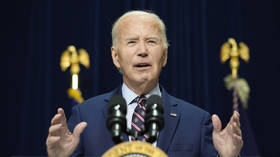Same question, different answers: What’s going on with the Brexit polls?

Depending on which poll you read this week, the UK is either baulking at the thought of leaving the EU or on a clear path to Brexit and the ensuing apocalypse world leaders have predicted. RT asks: what is going on?
In two polls published this week, the campaign for Britain to ‘remain’ in the EU had a clear lead over the ‘leave’ campaign.
Ipsos MORI found the ‘remain’ camp has an 18 percent lead over the ‘leave’ campaign, while a YouGov survey found ‘remain’ has 44 percent support against the ‘leave’ camp’s 40 percent.
Done deal? Not in the murky world of opinion polls.
Polling firm TNS published the exact opposite result on Tuesday, with 41 percent of respondents backing Brexit against 38 percent supporting ‘remain.’
Psychiatric patients encouraged to vote in EU referendum https://t.co/BBAkj6Biaspic.twitter.com/FYujIae5XE
— RT UK (@RTUKnews) May 19, 2016
If you’re scratching your head, be warned: it’s about to get even more confusing.
Pollster ICM performed two surveys this week, one online and one by telephone. The results were completely different.
In the online poll, 47 percent of respondents backed Brexit, while 43 percent supported ‘remain’ and 10 percent ‘didn’t know.’
In the telephone poll, however, 47 percent backed the EU, while 39 percent supported ‘leave’ and 14 percent ‘didn’t know.’
ICM’s Martin Boon attempted to explain the disparity.
Brexiteers warn EU increases risk of terror attacks as 800,000 migrants wait in Libya https://t.co/u1UKJjD27cpic.twitter.com/UJkeew63ZX
— RT UK (@RTUKnews) May 18, 2016
“The narrative that phone polls are more likely to be right ignores some fundamental flaws in phone methods,” he cautions.
“Labour supporters are continually oversampled by phone, and that may matter more than those same phone polls missing out on supposedly pro-’remain’ types, who are disproportionately less likely to turn out to vote.
“Similarly, what’s lurking under online covers could be equally nasty, and we should not ignore that the fact the UKIP voters are again, as they have long since been, higher in online polls than phone (or indeed at recent elections).”
One possible explanation for the incoherent results is that pollsters are taking different approaches to surveys after the debacle of last year’s general election, when opinion polls predicted a hung parliament only for the Tories to gain a majority on election day.
Leaked letter shows Cameron 'knee-deep in a conspiracy' with big business to keep UK in EU https://t.co/SVvGPGtz9tpic.twitter.com/JgyVTkO0VV
— RT UK (@RTUKnews) May 17, 2016
Then there’s the very strong possibility nobody has a clue what’s going on. As Boon said: “If you want to ask me … the answer you’d get is, ‘I just don’t know.’”
There is one prediction which may be worth listening to. Polling analyst Matt Singh, creator of Number Cruncher Politics, was one of the few people to accurately predict last year’s general election results.
Now he’s predicting victory for the ‘remain’ campaign.
“The forecast is live on the site and at the moment, the model is suggesting a 78 percent chance of ‘remain’ winning,” Singh told Business Insider on Wednesday.
“This is a bit higher than what the betting markets are saying but not by a huge amount.
“The caveat to that is we haven’t had that many polls in the last couple of weeks so the data it’s based on is a little bit older than I would like.”












